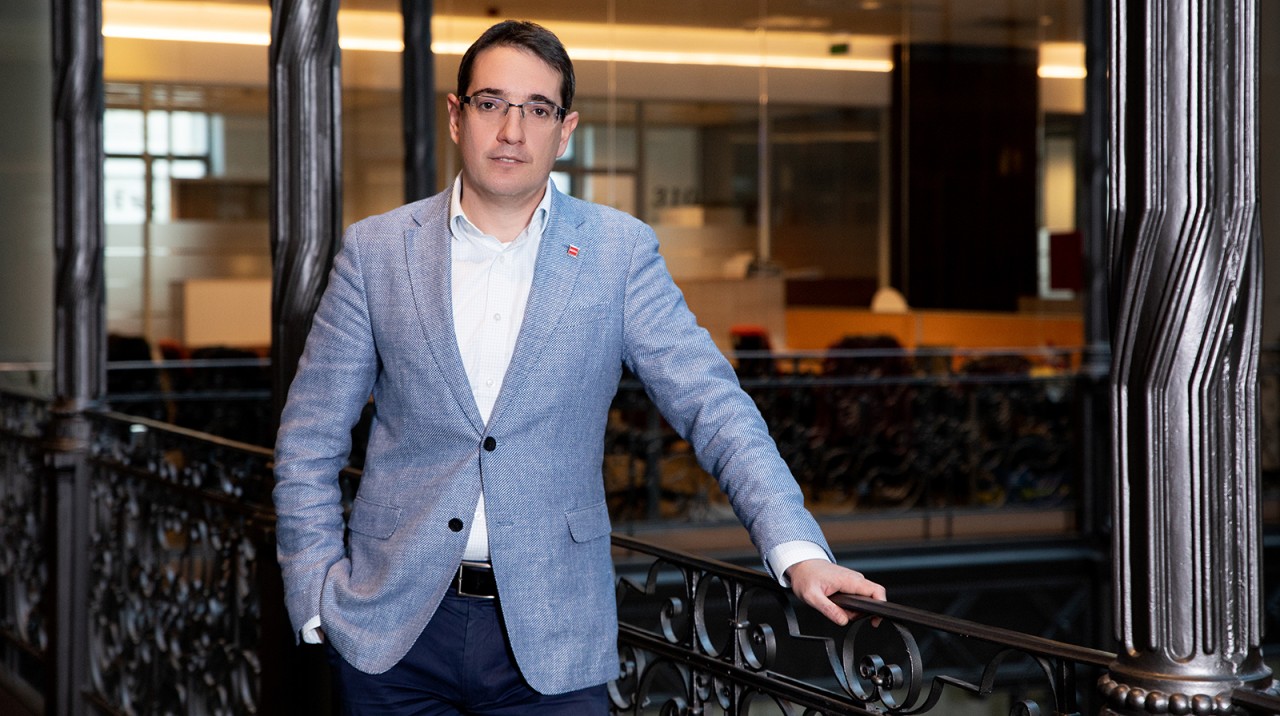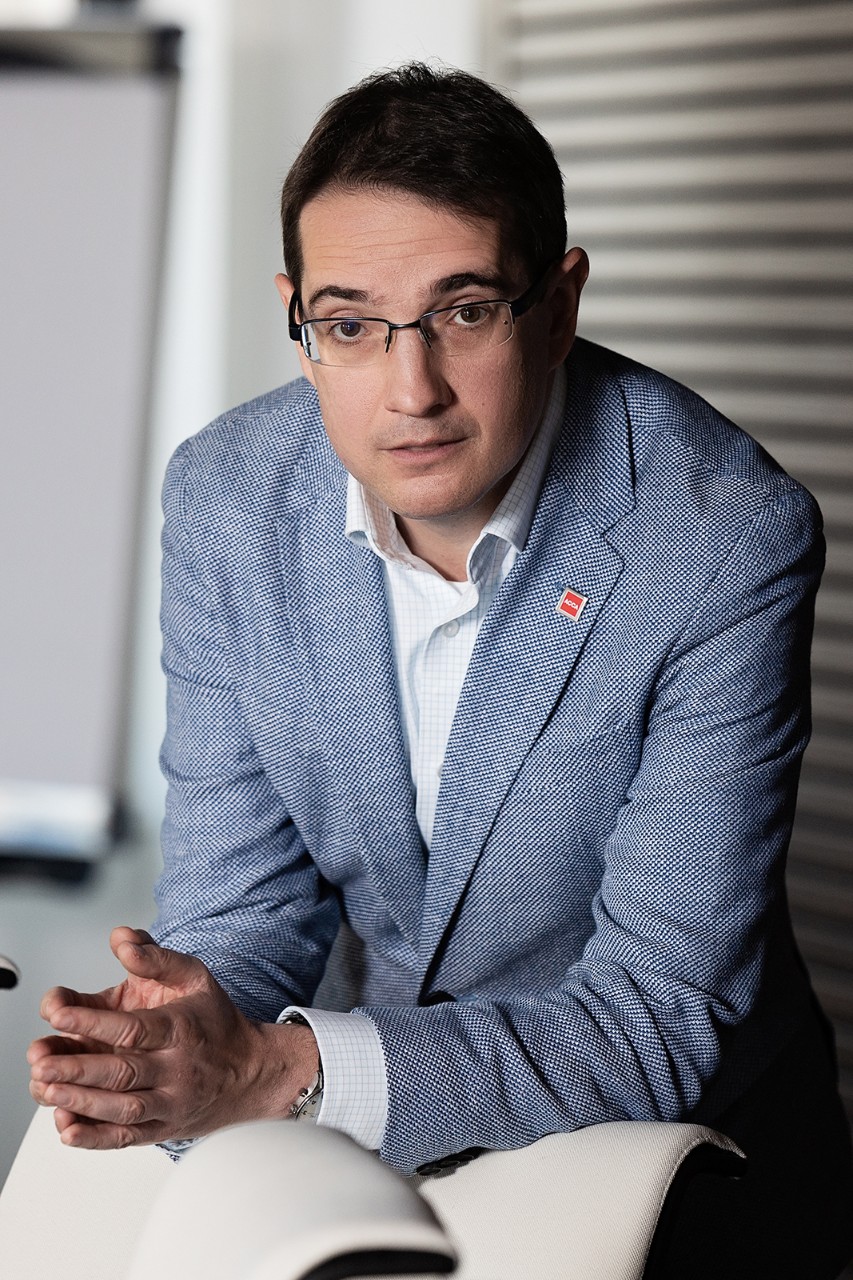
From his base at PwC’s office in Hungary’s capital, Budapest, Gábor Balazs FCCA used to clock up thousands of air miles annually, supporting clients across 29 countries.
Since Covid-19 grounded fleets across the globe, the partner and capital markets and accounting advisory services leader for Central and Eastern Europe is missing this aspect of his role. ‘In-person meetings are crucial to business relationships,’ he says. ‘The personal touch is not only essential for maintaining business but also for landing new clients.’
Nevertheless, as a professional service provider, PwC has been busier than ever. ‘Demand for auditing and high-quality advice is high,’ Balazs says. ‘People still have to do compliance and so our services are essential and in demand.’
Real-life problems
Balazs himself is nothing if not committed, not just to his own work but also to the profession. When he is not giving cutting-edge advice to large clients on complex IFRS Standards or local GAAP issues, supporting them in adopting new accounting standards and transitioning to IFRS reporting, he oversees ACCA training for PwC Hungary.
As part of this, he recently ran an online CPD course on the financial reporting impact of Covid-19, which was attended by ACCA members from 114 countries. One area of great interest is how lessees are affected by the new leasing standard, IFRS 16.
‘Restaurants and retail outlets that have been forced to close due to lockdown restrictions face challenging problems,’ he says. ‘One of the most complex right now is how to account for rent concessions. There are also all sorts of government support schemes that should be considered and these are hugely complex.’
In this regard, he says, the simplified reporting on IFRS 16 offered by the International Accounting Standards Board can be enormously helpful to troubled businesses.
CV
Gábor Balazs FCCA is currently partner and accounting advisory and client training services leader for Central and Eastern Europe (CEE) at PwC Hungary. In addition to CEE, his role covers the Commonwealth of Independent States. He first joined PwC in 1997. From 2000–03 he was a reporting manager at Citibank Hungary, responsible for management reporting, US GAAP statutory reporting and treasury accounting-related projects in the corporate banking division. Since rejoining PwC in 2003, he has specialised in technical accounting in the CEE, and took on leadership of the accounting advisory practice in 2014 and client training activities in 2020.
Restaurants and retail outlets that have been forced to close face challenging problems. One of the most complex right now is how to account for rent concessions

Future of reporting
However, Balazs believes that the international accounting platform is robust and once Covid-19 is behind us, a relatively stable period of financial reporting will dawn, accompanied by an increased focus on reporting of non-financial issues: environmental, social and governance factors.
Another area of growing interest is virtual training. Balazs is an avid promoter of education in the virtual space and sees the flourishing of this particular approach as one of the benefits of the pandemic.
‘Online learning is an industry that is going through the roof. I don’t believe the classroom will return to the same extent post-pandemic,’ he says, adding that as well as offering flexibility and lower operational costs, online learning enhances cultural diversity by mixing students from different countries and cultural backgrounds in one virtual classroom.
From computing to accounting
Balazs’ career could easily have taken a different direction. In pre-internet days and while still at high school, he was fascinated by and heavily involved in computer programming, but in the end wound up in accounting. Now, with digitalisation transforming the profession, it looks like he was ahead of the game.
After completing his bachelor’s degree in accountancy at the Budapest University of Economics, Balazs was recruited by the predecessor of PwC in Hungary.
His aspirations to both study and work abroad led him to embark on the ACCA Qualification. Today, after an extensive career that has included spending two years in the UK, he remains passionate about what ACCA has to offer, viewing it as an international passport that allows members to work anywhere around the world.
Power of ACCA
Balazs maintains that the ACCA Qualification trumps both bachelor’s and master’s degrees when accountants compete on the labour market, especially as the pace of business life accelerates globally. ‘If someone is tough and diligent enough to finish the exams, it is a quality stamp of approval,’ he says. ‘When I hire people, I look for their ACCA Qualification or, for part-qualified students, at their exam performance.
‘If you are a young professional now, you have many more opportunities than I did when I entered the job market. People should use the networking opportunities within ACCA to grab the ideas being shared and discussed.’
As well as promoting ACCA within PwC Hungary, Balazs is also engaged on a wider scale, having been a member of the International Assembly for a number of years. This, he says, provides him with the chance to engage with members from across the globe.
‘We also have the opportunity to meet the ACCA management, discuss strategy and learn about what members in other countries are doing,’ he says. ‘It allows us to discuss best practice globally and helps to create long-lasting friendships as well.’
Balazs has no regrets about the time and hard work he put into achieving the ACCA Qualification. ‘It is a sacrifice worth making,’ he says. ‘It helps you become a professional of high value in the job market.’
Tips
‘Be patient and persevere with your training and career development, celebrating small successes along the way.’
‘Broaden your horizons and focus on long-term gains.’
‘Seek out opportunities to network with professionals around the world, and engage in the sharing of ideas and best practice at ACCA events.’



